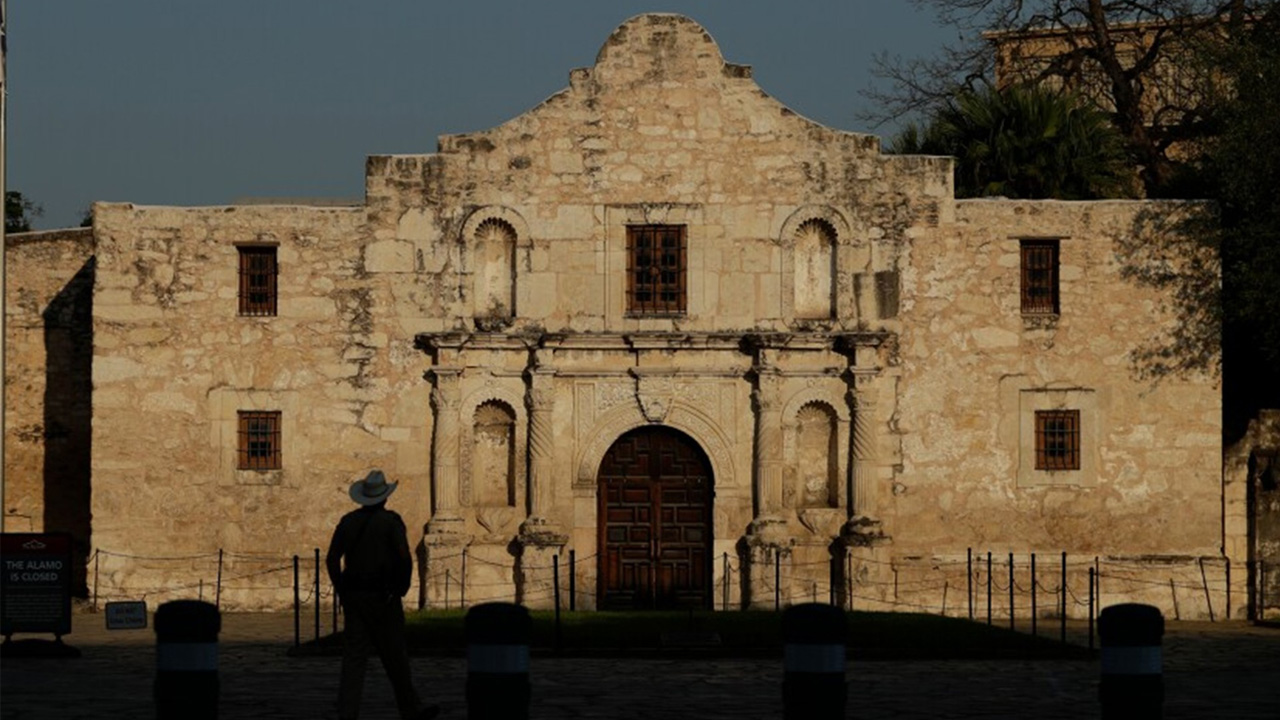
Communism, American Exceptionalism Latest Flashpoints in State History Standards
Education Week | By Sarah Schwartz | November 25, 2025
Battles over what children should learn in history classes, a fixture of American education debates over the past five years, are once again heating up as two large states begin to make revisions and additions to their social studies standards.
In Texas, the state board of education has adopted a framework to guide its forthcoming standards revision process that critics argue overemphasizes Texas history at the expense of world history and geography. The board has appointed social studies content advisors who espouse teaching that the United States was founded as a Christian nation or have pushed for district curriculum overhauls that scrub references to diversity.
And in Florida, newly adopted social studies standards on communism instruct educators to teach students about the “repackaging of Marxist ideology” in current political discourse, and the “dangers of propaganda” in modern media. Historians have said the standards present a skewed picture and minimize the consequences of McCarthyism in the United States.
Now, these changes come as several red states have moved to infuse standards and curricula with Christian teachings, anti-communist lessons, and explicit endorsement of American exceptionalism.
Shifts in how these topics are portrayed in states like Texas, one of the largest textbook markets in the country, and Florida, also in the top 5 states by public school student enrollment, could have ripple effects nationwide.
Texas standards shift to focus on state history, U.S. as a ‘leader in the world’
In Texas, controversy has resurfaced around the standards development process again, after political pressure derailed the update that was originally planned for 2022. (State standards are usually updated every seven years or so; Texas’s last major revision was in 2010.)
Three years ago, conservative advocates and groups complained that the proposed standards sidelined Texas history, didn’t do enough to promote American exceptionalism, and included LGBTQ history like the 2015 U.S. Supreme Court decision legalizing gay marriage. In response to those concerns, the state’s board of education voted to delay the revision.
For the 2025 revision, the state board of education adopted a guiding framework that devotes more course time to Texas history, and frames the founding of the United States and Texas as “the noblest experiment.”
Its supporters say a stronger emphasis is necessary because “we have kids at the university level that are identifying as Marxists and supporting communists,” said Mandy Drogin, the campaign director for Next Generation Texas at the Texas Public Policy Foundation, which advocated for the 2025 framework.
“We have kids that are questioning the incredible blessings that have come through the capitalist markets,” she said. “That was the impetus for us to start advocating for something better.”
The new K-8 framework lays out a content sequence that’s substantially different from how Texas students learn social studies now.
Currently, students learn about most topics for the first time in elementary school, and then revisit them in more depth in middle school. For example, 4th graders learn about the basic functions of the state’s Constitution in a Texas history class, and then come back in 7th grade to dive deeper into how the document reflects different principles of government and compares to the U.S. Constitution.
The new framework takes a chronological approach: 3rd grade covers prehistory to 500 C.E., 4th grade covers 500-1500, 5th grade covers 1500-1800, 6th grade covers the 19th century, 7th grade covers the 20th century, and 8th grade is a Texas and U.S. “capstone” that teaches why Texas and the United States are “leaders in the nation and the world.” It also eliminates a standalone course on world cultures and politics.
This chronological organization allows teachers to better contextualize “the idea of freedom and where it came from,” Drogin said.
But major professional organizations, including the Texas Council for the Social Studies and the American Historical Association, argued in favor of a different model, more similar to the current one.
The new course sequence “disregards research-tested practices and abandons familiar courses in favor of an unbalanced approach designed to promote American exceptionalism,” reads a September statement from the AHA.
Beyond the framework, some progressive advocacy groups have criticized the state board of education’s appointment of several of the revision process’ content advisors, who will review the social studies standards that are developed by a workgroup yet to be selected.
The Texas Freedom Network, a nonprofit that advocates for religious freedom, LGBTQ+ rights, abortion access, and against school vouchers, has opposed the selection of three members in particular:
- David Barton, the founder of WallBuilders, a nonprofit that promotes the idea that America was founded as a Christian nation and publishes resources for use in classrooms;
- Jordan Adams, an independent educational consultant who has worked with at least one school board on a controversial curriculum overhaul; and
- David Randall, the executive director of the Civics Alliance, a coalition that promotes banning hands-on civics instruction that encourages civic engagement or political activism.
“Our concern is that these people are political activists, not trained historians,” said Levi Fiedler, the political coordinator at the Texas Freedom Network.
In an emailed statement, Adams said that his goal was to ensure the revision produced the “best history and civics standards in America.”
“Every teacher in America falls somewhere along the political spectrum, and all are expected to set their personal views aside when teaching. The same goes for myself and my fellow content advisors,” he said.
“Of course, given that this is public education, any efforts must support the U.S. Constitution and Texas Constitution, the principles of the American Founding, and the perpetuation of the American experiment in free self-government.”
Florida state leaders approve standards to convey ‘catastrophic failures’ of communism
In Florida, the update to social studies standards doesn’t mark a full revision but rather the inclusion of new content: lessons on communism.
The additions follow the passage of a 2024 law that mandated teaching about the history of communism in public schools. The approximately 30 pages of communism-specific standards span grades 6-12.
In a statement when the standards were approved earlier this month, Florida Commissioner of Education Anastasios Kamoutsas suggested that the standards would dissuade students from certain political ideas.
“With the resurgence of communist ideologies across the United States and throughout the world, it is more important than ever for students to understand the catastrophic failures and human suffering caused by communist regimes,” he said.
“Florida’s new history of communism standards will ensure that students learn the truth about the brutal realities of life under communism and gain a deeper appreciation for the blessings of liberty that define our nation.”
Students are expected to learn about “how widespread individual freedom is incompatible with communism,” why communism results in “dehumanization,” and “the essential role of private ownership of property in securing political freedom.”
The standards also say that students should receive instruction in “slander against anti-communists, such as red-baiter and Red Scare” and “the repackaging of Marxist ideology using modern terminology and concepts to disguise the underlying Marxism.”
Historians have called the standards misleading.
Jonathan Zimmerman, a University of Pennsylvania professor of the history of education, told the Tampa Bay Times that they present a “highly biased” picture.
And Ellen Schrecker, an emeritus professor of history at Yeshiva University in New York City, said in an interview with the Associated Press that the standards downplay the “political repression” of McCarthyism.





